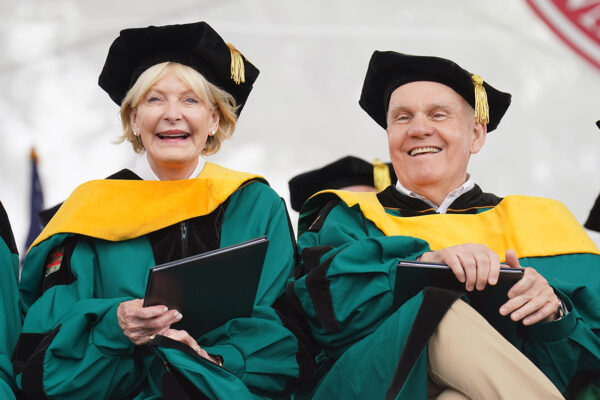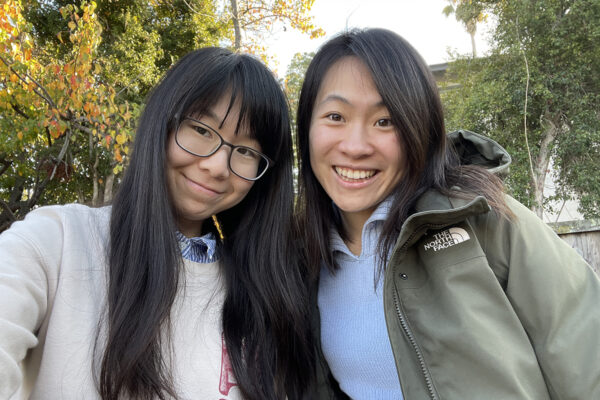Washington University in St. Louis has teamed up with 15 of the nation’s leading public and private higher education institutions to launch the STARS (Small-Town And Rural Students) College Network, a new effort to help students from small-town and rural America enroll in, succeed at and graduate from the undergraduate program of their choice.
As a founding member, Washington University has committed to expanding visits by college admissions staff to high schools in small towns and rural communities, establishing new programs that introduce counselors from rural high schools to the university and surrounding region and engaging current WashU students from rural areas to serve as ambassadors and mentors.

“Being a part of the STARS network will provide Washington University with the opportunity to expand on our commitment to finding the best students from every corner of the United States,” said Ronné Turner, vice provost for admissions and financial aid. “Bringing the unique voices of rural and small-town students to WashU helps enhance our community while serving students who are often underrepresented in higher education.”
The university has taken important steps to recruit and enroll more rural students. In 2022, the university hired two admissions officers dedicated to rural communities served by the WashU Pledge, the scholarship initiative that provides a free undergraduate education to admitted students from Missouri and southern Illinois who are Pell Grant-eligible or from families with annual incomes of $75,000 or less.
And this summer, Washington University will welcome 25 high school juniors to the inaugural Washington University Rural Scholars Academy, a free summer college preparatory program that will feature lectures with Washington University faculty, visits to St. Louis attractions and information sessions about the college application and financial aid process.
A gift from Washington University in St. Louis alumna and Emerita Trustee Joyce Buchheit and her husband, Chauncy Buchheit, helped fund these new initiatives.
Katie Feeney, a junior from the small town of Memphis, Mo., will serve as one of the academy’s rural peer ambassadors. Feeney had never heard of Washington University until her calculus teacher encouraged her to apply. Feeney was wowed by the biomedical engineering program at the McKelvey School of Engineering but was sure her family could not afford the tuition.
“And then I opened the financial offer,” Feeney recalled. “I got a scholarship that I didn’t even know existed. I was like, ‘Mom, this is crazy. We can actually do this now.’”
Feeney said she has benefited from all that Washington University has to offer. She is now a research assistant at the School of Medicine, president of the Biomedical Engineering Society and a player on the club softball team.
The university, in turn, has benefited, too. Feeney is both a residential advisor and a calculus peer team leader.
“People from rural communities are some of the hardest-working people I know,” Feeney said. “Rural students know the effort that it takes to succeed. They know physical labor; they know sacrifice. We bring that mindset and those experiences to campus. And that’s what makes WashU so exciting — that it’s filled with all of these crazy, cool people, each with their own unique background.”
STARS is also teaming up with Khan Academy and the nonprofit tutoring platform Schoolhouse to offer a free online math curriculum and peer tutoring for students in small towns and rural communities, leading to a certification of mastery in calculus.
STARS is supported by a $20 million gift from Trott Family Philanthropies, the foundation of Byron and Tina Trott. Trott-affiliated philanthropic efforts have provided substantial support to students from small towns and rural communities. One such effort, rootEd Alliance, has leveraged both private and public funding to train and place dedicated college and career counselors in rural high schools in Missouri, Texas, Tennessee and Idaho.
“There is a massive talent pool in our small towns and rural communities that has so much to offer — to our colleges, to society and to future generations,” said Trott, chairman and co-CEO of BDT & MSD Partners and a native of small-town Union, Mo. “These smaller communities simply don’t have the resources to help show these students what is possible and help them get there. Partnerships like STARS and rootEd not only help to turn the tide — they have a multiplier effect that can catalyze far greater change than any single institution or agency could make on its own.”
The network also comprises Brown University, California Institute of Technology, Case Western Reserve University, Colby College, Columbia University, Massachusetts Institute of Technology, Northwestern University, The Ohio State University, University of Chicago, University of Iowa, University of Maryland, University of Southern California, University of Wisconsin, Vanderbilt University and Yale University.


